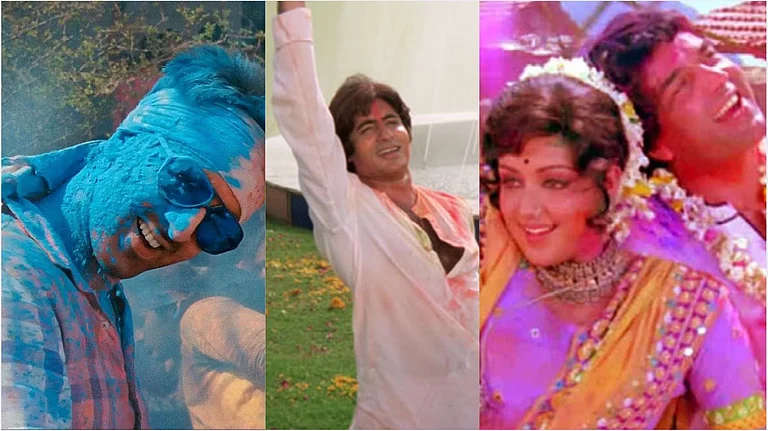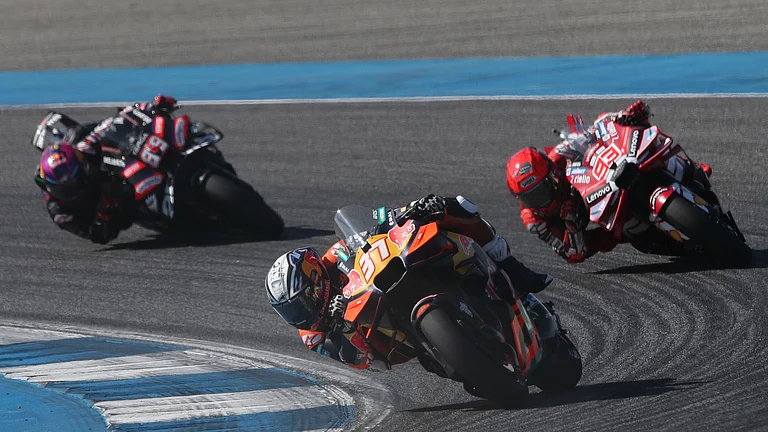Our report on Jammu and Kashmir, titled A New Compact, was released roughly ten days ago. In the week since its publication, a number of responses have come in, some have been visceral, while others have been more considered.
Before discussing the responses, let me put two points straight. First of all, the report is divided into three parts: a situation report, a set of political ideas for discussion, and a roadmap recommending CBMs and dialogue tracks. It is the set of political ideas that people have mostly responded to, which is a pity, since the roadmap provides an anchor for the political ideas and deals with other settlement issues, such as progressive demilitarisation, reconciliation and justice.
Secondly, while releasing the report, the Union ministry of home affairs clarified that it does not represent the government’s views, calling for an informed debate on it. This is as it should be. Ideas for a political solution have to be discussed by all stakeholders, especially political representatives, and some consensus arrived at, before they can become government policy. The allegation that government has disassociated itself from the report is puerile.
Turning to the responses, some focus on sweeping dismissal while others focus on key issues. There is little to be said to those who consign us to oblivion. But there is one point that does need addressing: that there is nothing ‘new’ in the report. No, there isn’t. Most of what people said to us they have said before, many times. The point is, they are still waiting for action. It is this that the word ‘new’ in our title refers to: the need to make a new compact with the people of the state that this time action will be taken.
Secondly, please note that peace settlements rarely contain anything new. Most of the proposals that go into peace agreements are discussed over years, if not decades, before they are agreed upon. What is perhaps new about our report is that we have tried to incorporate all the suggestions made to us, addressing minority as well as majority concerns, CBMs as well as core political points.
Now, for the contentious points. They cluster around four salient questions:
- Should the GOI push for a settlement of the core political issues or should they focus on CBMs?
- If the former, as we advocate, then should Article 370 be the baseline or not?
- Will regional devolution, part of the roadmap proposed by us, polarise and even bifurcate the state?
- Are we somehow legitimising Pakistan’s role by devoting a chapter to harmonising relations across the LOC?
As far as the first question is concerned, there have been start-stop initiatives to address the core political issues for the past two decades, especially in the last ten years. This cycle of attempts and breakdowns has contributed towards the frustration, anger and cynicism that we see in the state, where it is perceived as indicating a lack of intent on the GOI’s part to follow through. A sustained and time-bound dialogue for a settlement should help build confidence, especially if it focuses on which concretes need to be agreed upon and implemented.
Should Article 370 be the baseline for a results-oriented political dialogue? The first reactions to our report came from the BJP and the Hurriyat Conference (M), within minutes of the report’s release. The BJP executive condemned it, as did the Mirwaiz, though for different reasons. The BJP considers Article 370 to be a vitiation of India’s unity, whereas the Mirwaiz apparently considers Article 370 to be a confidence-building measure (CBM).
It is common sense that when you have two opposite poles, you try to seek a mid-point from which to take off. If the BJP thinks Article 370 gives far too much and the Hurriyat thinks it gives far too little, then it represents a mid-point. It also happens to be a historical bone of contention, and features in the positions of the two major regional political parties, the NC and PDP. The only way in which it could be ignored or bypassed is if all the stakeholders agree that it is obsolete. Will they do so? And, while we are on the subject, could the BJP please explain why they did not raise Article 370 when they were in power?
Unlike the BJP, neither the Congress nor NC and PDP have rushed to a judgement. Indeed, the PDP’s initial comments have been hearteningly nuanced. Nevertheless, an interesting question arises out of the BJP’s rejection of our report. From what I understand, they have rejected it in toto. If that is the case, then they have also rejected the regional devolution that is suggested in it. This would be a significant departure from previous positions, and would bring the BJP view closer to a sizable section of opinion in the Valley, which fears regional devolution will only lead to further divisions of the state. It would be immensely helpful if the BJP were to clarify this point.
Our recommendation for regional devolution has been most hotly contested in the Valley, where it is seen as revealing our true intention—to divide the state. We had noted a distressing degree of communal polarisation not only between the three regions of the state but also within each region. This polarisation is fed by grievances that are actually over administrative matters. If administration can be devolved at every level, state to region, region to district and district to panchayat, it should not only improve governance but also separate administrative from political issues.
To be sure, it would be foolish to deny the danger that administrative devolution, at the regional level, can have the opposite effect of feeding polarisation rather than alleviating it. So long as there is one legislative assembly, one civil service and one police force—note that none of the three has broken into communal units—and their integrative capacities are strengthened through impartiality, this danger can be averted. In fact, doing nothing appears to have allowed communal polarisation to intensify rather than be alleviated.
Finally, have we somehow legitimised Pakistan’s role by discussing it? First of all, we have discussed Pakistan’s role in several different contexts: in the first chapter, in relation to militancy and the ups and downs of peace initiatives; and in the last chapter, which talks of harmonising relations across the LOC. Neither discussion has been exactly complimentary, but each was necessary. Not only have we discussed Jammu and Kashmir with Pakistan for decades, under both BJP and Congress governments, we actually achieved some progress in those discussions. Pakistan holds a considerable part of the former princely state, and, under the Parliament resolution, it is incumbent on us to show concern for the residents of Pakistani-held Jammu and Kashmir.
Let’s close with a point that is in danger of being lost in the current debate. The government has called for an informed debate on the report. If there is, indeed, a debate in which a consensus emerges on certain action points, then we may actually see some forward movement for a Jammu and Kashmir peace process. And for us, a personal point: in the one year of our mission, we tried to hold consultations with every section of public opinion in every district of the state, and sought to summarise, even synthesise, their views and demands in a report. We have been given an opportunity to place our report before those people who talked to us. If they reject it as inadequate or ‘fit only for the trashcans of history’, so be it. But I hope they will read it in its totality, and then unpick it to see if there is anything in it worth supporting—and say so. It is not every day that government asks for public opinion.
(Radha Kumar is a former interlocutor for Jammu and Kashmir and director of the Delhi Policy Group)

























